Gathering thousands of years of cultural context, singing the beautiful China, singing the pride of the times.
April 23 is the 27th World Book Day. CCTV’s large-scale cultural and music program “Classic Chanting” is based on the vast treasure house of books, turning the classics into continuous drizzle, moistening things silently, and creating layers of cultural ripples, triggering the riots on and off the stage. “Spirit and Sound”.
Since its launch on April 3, the new season of “Classic Chanting” has continued to show the beauty of Chinese history, the beauty of mountains and rivers, and the beauty of culture “with poetry and songs”. Up to now, the show has gained nearly 80 hot search hot lists on the whole network, ranking first in the Weibo variety show influence list. From the Winter Olympics trumpet boy singing the solar terms into a song, to the beautiful awakening of the “Fuchun Mountains” on the stage, to the classic singing “Spring Night in Luocheng Wen Flute”, fondly remembering the “Winter Olympic Dreamer” Deng Xiaolan… In this season In “Classic Chanting”, the audience is constantly reunited with traditional culture, and has a gentle dialogue with the beautiful soul. In the spiritual journey that spans ancient and modern times, the audience is full of moving.
At 20 o’clock tonight, the third issue of “Classic Chanting, Great Beauty China” will add music to the quiet verses in the book on the CCTV integrated channel of the main station, so that the handed down classics will strike the hearts of contemporary people again. Qi Guangpu and Dong Baoshi, who have won the Winter Olympics in four World Wars, expressed their love with a song, and borrowed the song “Deng Feilai Peak” to interpret the persistent dream-chasing attitude of “not afraid of floating clouds to cover one’s eyes, and one’s own destiny at the highest level”. In addition, the audience will follow Xin Qiji’s poem “Looking straight down at the mountains and rivers” in the generous singing of Manjiang, listen to Zhou Zhaoyan, Wang Hengyi and eight young performers bring the innocent “Xiaoyaoyou”, through Su Yang’s “Cool” State Ci” touches the water of the Yellow River flowing deep in the blood of Chinese sons and daughters, and in Chen Shu’s “Remembering Jiangnan” and Zhou Bichang’s “Night Snow”, it regains the classic beauty that Bai Juyi left to today.
Go to the height of your dreams
Winter Olympic champion Qi Guangpu sings his motto to you
Rich history, illustrious civilization. Every inch of rivers and mountains on the land of China is infiltrated with the thoughts, spirits and feelings of the sages. When we walk into them with warmth and respect, a sense of pride of “Leaving the history of the country, and our generation will come again” will naturally arise from the heart.
In this issue of “Classic Chant Spreading Great Beauty China”, Qi Guangpu, a “veteran of the four dynasties” who won one gold and one silver at the Beijing Winter Olympics not long ago, will perform Wang Anshi’s “Deng Feilai Peak” together with Dong Baoshi. . In the past, Wang Anshi, who was only 30 years old, first entered the Huanhai Sea with extraordinary ambitions. He used to climb Feilai Peak to express his mind and express his high eyes, high hearts and high ambitions. The most classic phrase in the poem “Don’t be afraid of floating clouds to cover your eyes, you are at the highest level by yourself” is also Qi Guangpu’s motto.
He said in the program: “This sentence often inspires me, gives me a lot of courage to face difficulties, and always reminds me what my original intention is. In the Olympics, the height I want to challenge is only five Ten centimeters, these fifty centimeters are exactly the height of the championship podium, and I have been working hard for this dream for so many years.”
Climbing the road, the road is long and difficult, only by removing the layers of clouds, can we see the glory of the rising sun. According to Dong Baoshi, a musician who cooperated with Qi Guangpu, “Deng Feilaifeng” not only means standing on the high point of dreams, but also represents the process of human beings sprinting towards the limit. In order to make “Dengfeilaifeng” more contemporary, the newly created song specially added a rap, in the lyrics “I stand on the highest mountain, practice ten years to sharpen a sword” “Watch me spin flying, break through the human To the limit, wait until the rising sun, and welcome the voice of the world.” He transformed the old words of “Dengfeilaifeng” into a new voice, conveying the common dream-chasing feelings and persistent attitude of ancient and modern times.
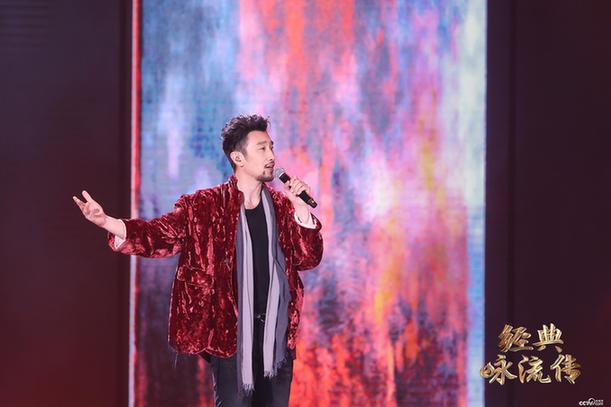
Climbing high and looking into the distance has always been an eternal theme of Chinese classical poetry. In “Tai Chang Yin Jiankang Mid-autumn Night for Lu Shuqian”, the patriotic poet Xin Qiji imagined that “it is easy to ride the wind, the sky is thousands of miles away, and you can look down at the mountains and rivers.” Today’s Chinese people can already look down at their own space station affectionately A beautiful home, isn’t this exactly what Xin Qiji dreamed of? In this episode of the program, Man Jiang will use a confident and surging song “Looking Down at the Mountains and Rivers”, depicting the thousands of atmospheres of riding the wind and overlooking the rivers and mountains, singing the vast and bright China of great beauty.
Ride in the beautiful world
“Post-10s” perform colorful “Getaway” with the heart of a child
The 5,000-year history of continuous and melodious songs has left us a vast cultural space. It can be said that “Classic Chanting” is a tribute, innovation and inheritance galloping in the beautiful world of culture. The program integrates traditional images in the spirit of the times, and continuously injects new vitality into the classics.
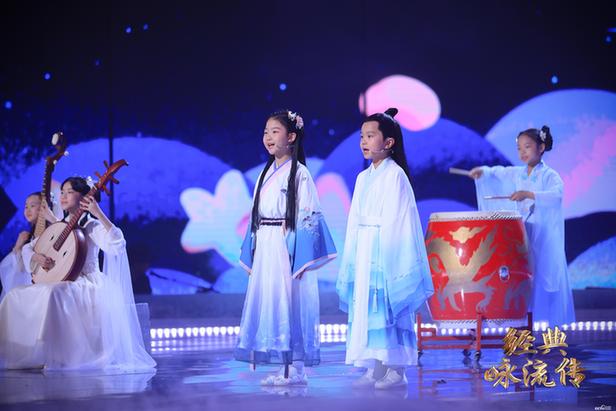
“Xihe, it’s time for you to go; Mr. Ren is coming, there are big fish here; Jingwei, the tide is about to rise, go back quickly; Dasheng, let me play with Dinghai Shenzhen too”… In a childlike atmosphere In the show, eight-year-old Zhou Zhaoyan and Wang Hengyi will present “Xiaoyaoyou” together with eight other friends of the same age, showing the colorful world in Zhuangzi’s heart. On the stage, the children’s voices were clear and lovely, and the children played sheng, erhu, dulcimer, suona, pipa, zhongruan, bamboo flute, Chinese drum and other traditional musical instruments. The magical world created is reported with unique imagination and fresh feeling. It is believed that when the program is broadcast, many children will fall in love with “Easy Travel” as they do, and fall in love with the feeling of traveling and exploring in the traditional beauty.
If traditional culture awakens children’s imagination more, then for adults with certain life experience and sense of the times, traditional culture will always connect with their mood at a certain moment, and inspire them to want to protect , the desire to inherit and continue to write.
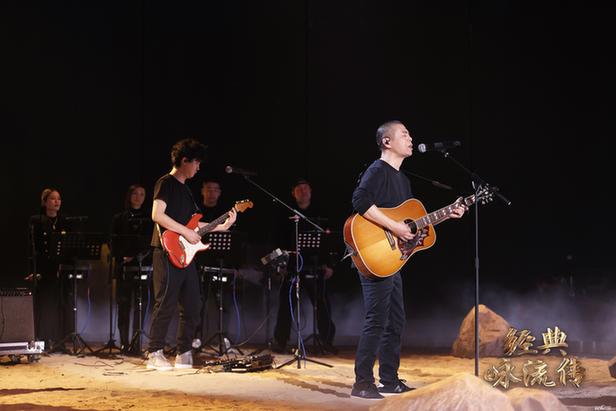
The Yellow River rushes, everything grows because of it, and civilization spreads because of it. The Chinese sons and daughters living on both sides of the Yellow River also wrote the spirit of the Yellow River incessantly in the relay of courage to move forward from generation to generation. In this episode of the program, singer Su Yang tried to shout out the poem “Liangzhou Ci” by Wang Zhihuan, a poet of the prosperous Tang Dynasty, in an original way. He not only used the stage to reproduce the magnificent desert of “long yellow sand”, but also used his singing to lead the audience to touch and flow. The water of the Yellow River in the blood.
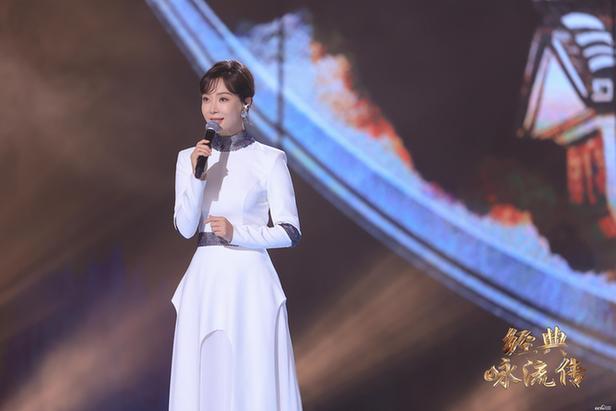
From Jiangzhou’s feelings of “knowing the heavy snow at night, and hearing the sound of broken bamboo”, to the Jiangnan memory of “sunrise, the river is red and the river is green as blue”, Bai Juyi, a great poet in the Tang Dynasty, described his feelings about life and nature. Pour into the poems, so that today we can follow his emotions across time and space, and listen to this amorous land. At that time, Chen Shu’s “Memories of Jiangnan” and Zhou Bichang’s “Night Snow” will accompany the audience into two landscapes written by Bai Juyi, one blooms in spring, bright and warm; the other blooms in winter night, ethereal and pure.
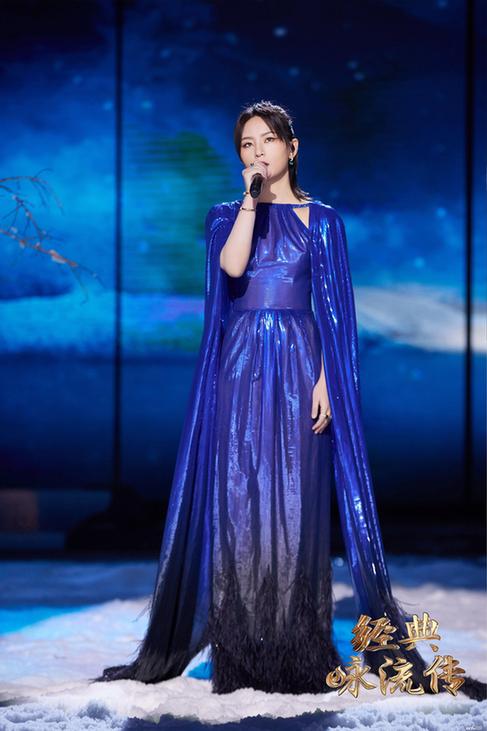
No matter the mountains and rivers, or poetry, they are the foundation of the great beauty of China, and also the background of the great beauty of China. At 20:00 on April 23 (Saturday), let us continue to follow the “Classic Chant Spread: Great Beauty in China”, indulge in the mountains and rivers, and have a thousand years of wanton poetry!
[
责编:杨帆 ]
